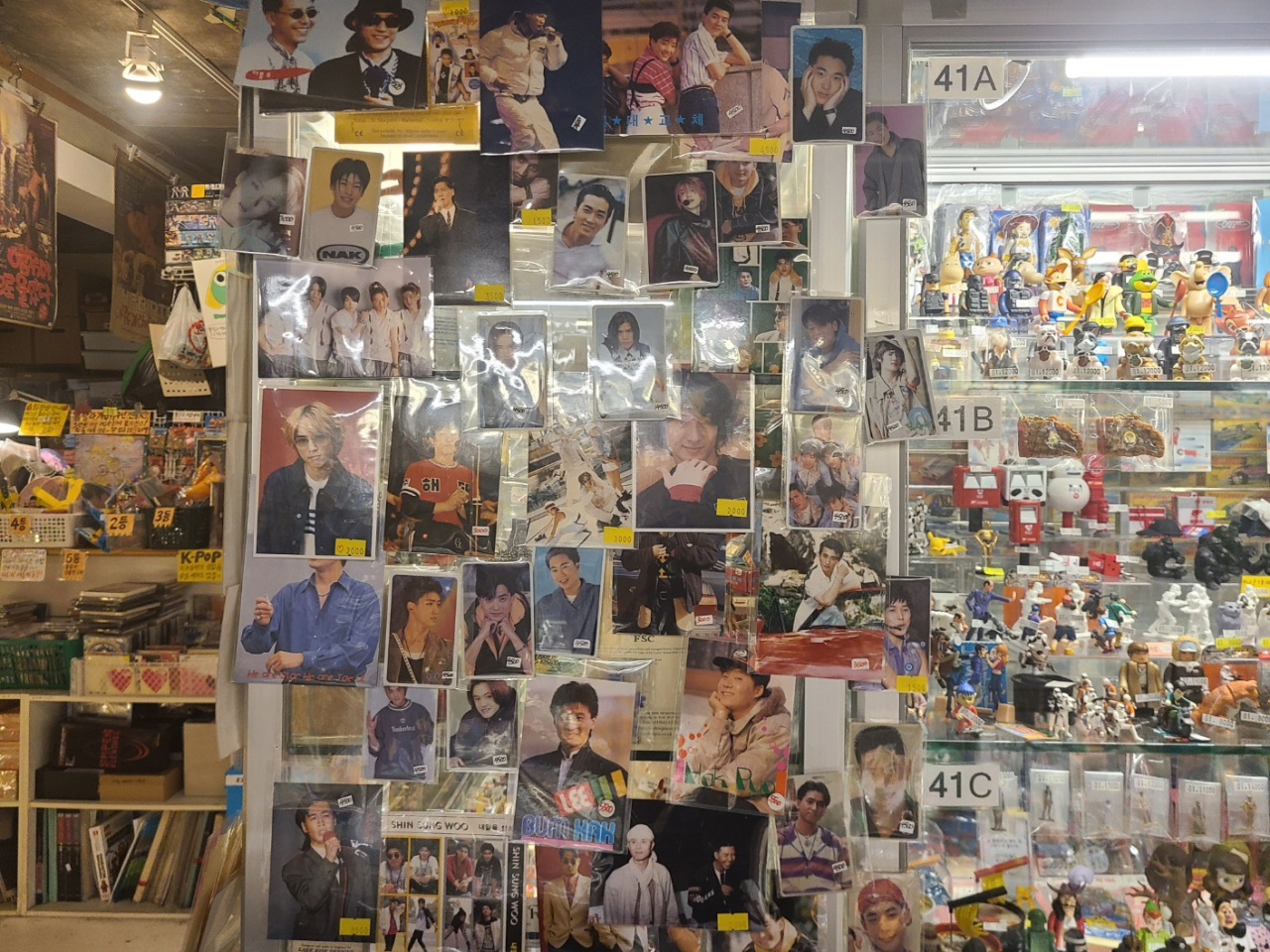 |
First generation K-pop artists' merchandise is sold in Pollalla Store in Hongdae, Mapo-gu, Seoul. (Jung Min-kyung/ The Korea Herald) |
Pollalla Store, located on a quiet street in Seoul’s youthful and artsy neighborhood of Hongdae, is a hidden hunting ground for “Y2K” culture fans. The underground venue is filled with one-of-a-kind vintage items from the late 1990s and early 2000s, including first generation K-pop star merchandise.
Hyun Tae-jun, the store’s 57-year-old owner, spoke of a distinct shift toward a younger demographic among his customers.
A couple of years ago, his customer base used to consist mainly of nostalgic people who lived through the turn of the century themselves.
But nowadays, even elementary school students and teenagers visit the store to buy rare items from the ‘90s and the 2000s, according to Hyun, who has been running the store since 2010.
The fashion, culture and accessories at the turn of the 21st century, commonly referred to here as Y2K -- short for the Year 2000 -- has caught the interest of younger people in their 20s and early 30s.
On top of the retro vibe, the Y2K era embodies a certain optimism for the new millennium and futuristic aesthetics, followers of the trend say.
Y2K-pop, fashion
Pollalla Store is just one of several Y2K-themed vintage shops in Hongdae that has surged in popularity with the Y2K craze. The two main keywords of this trend here are “first generation K-pop” and “fashion.”
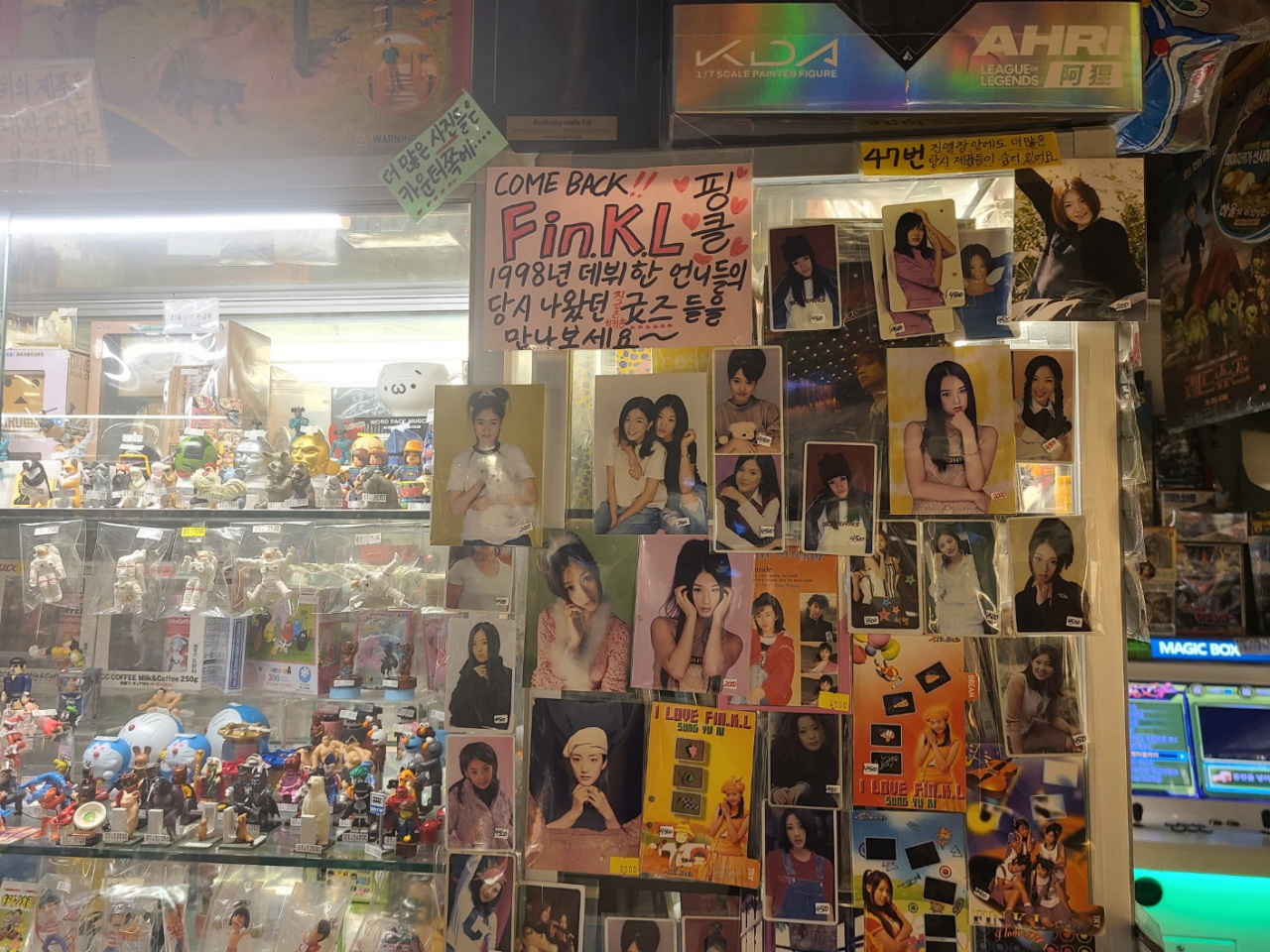 |
First generation K-pop artists' merchandise is sold in Pollalla Store in Hongdae, Mapo-gu, Seoul. (Jung Min-kyung/ The Korea Herald) |
First-generation K-pop merchandise is the most popular type of item sought out by Pollalla Store’s younger customer base, according to its owner Hyun.
“Albums and photo cards of K-pop groups that were active in the late ’90s to the early 2000s such as H.O.T., S.E.S., Fin.K.L and g.o.d are the store’s steady sellers,” he explained.
“I think purchasing these items gives these young customers a sense that they found something valuable and special.”
Some K-pop acts have also helped bring back the Y2K trend with their nostalgic songs and music videos. NewJeans’ music video for the single “Ditto” released in December last year contained retro-style camcorder footage of the members dancing and laughing together at school.
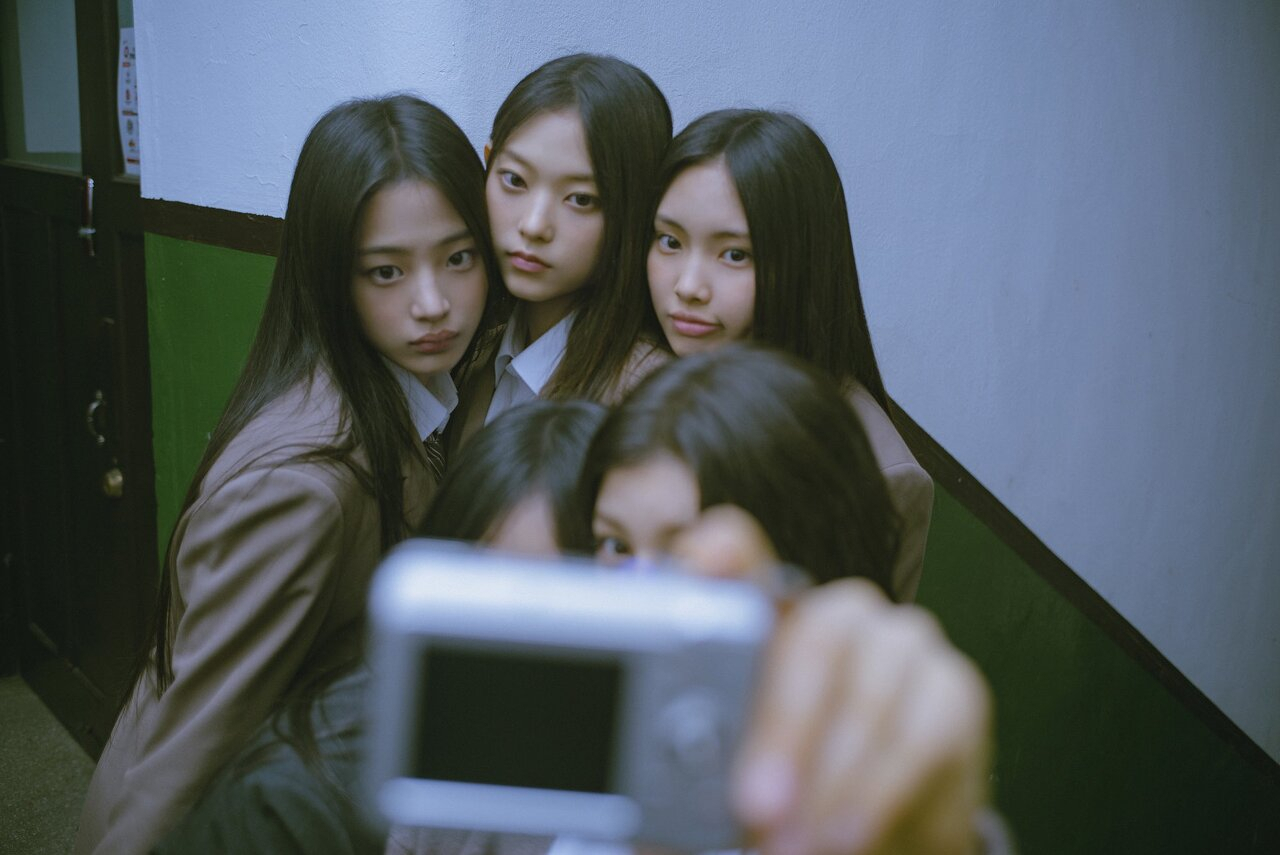 |
K-pop girl group NewJeans take a photo with a digital camera that was popular in the 2000s in a promotional image for the band’s single “Ditto.” (Ador) |
K-pop girl group Red Velvet member Joy’s solo album “Hello” released in May 2021 focuses on the Y2K aesthetic through music and fashion. Joy wears a colorful top with a denim mini skirt on the album cover -- a popular style in the early 2000s.
The adoption of the Y2K trend in K-pop has also led to an increased interest in 2000s fashion. Vintage shops across Hongdae that sell good quality, secondhand clothes originally purchased in the 2000s have garnered attention among young Koreans on social media platforms including Instagram.
Vinbro, a vintage shop in Hongdae which sells colorful graphic T-shirts from the 2000s, is a favorite shopping destination for Y2K fans. It is filled with secondhand T-shirts from Japanese streetwear brands such as Hysteric Glamour and A Bathing Ape, which were popular in Korea two decades ago.
“This is my favorite place to buy vintage T-shirts from the 2000s in good condition,” 23-year-old Park Yu-jin, a college student in Seoul said, while shopping at the vintage shop on Monday.
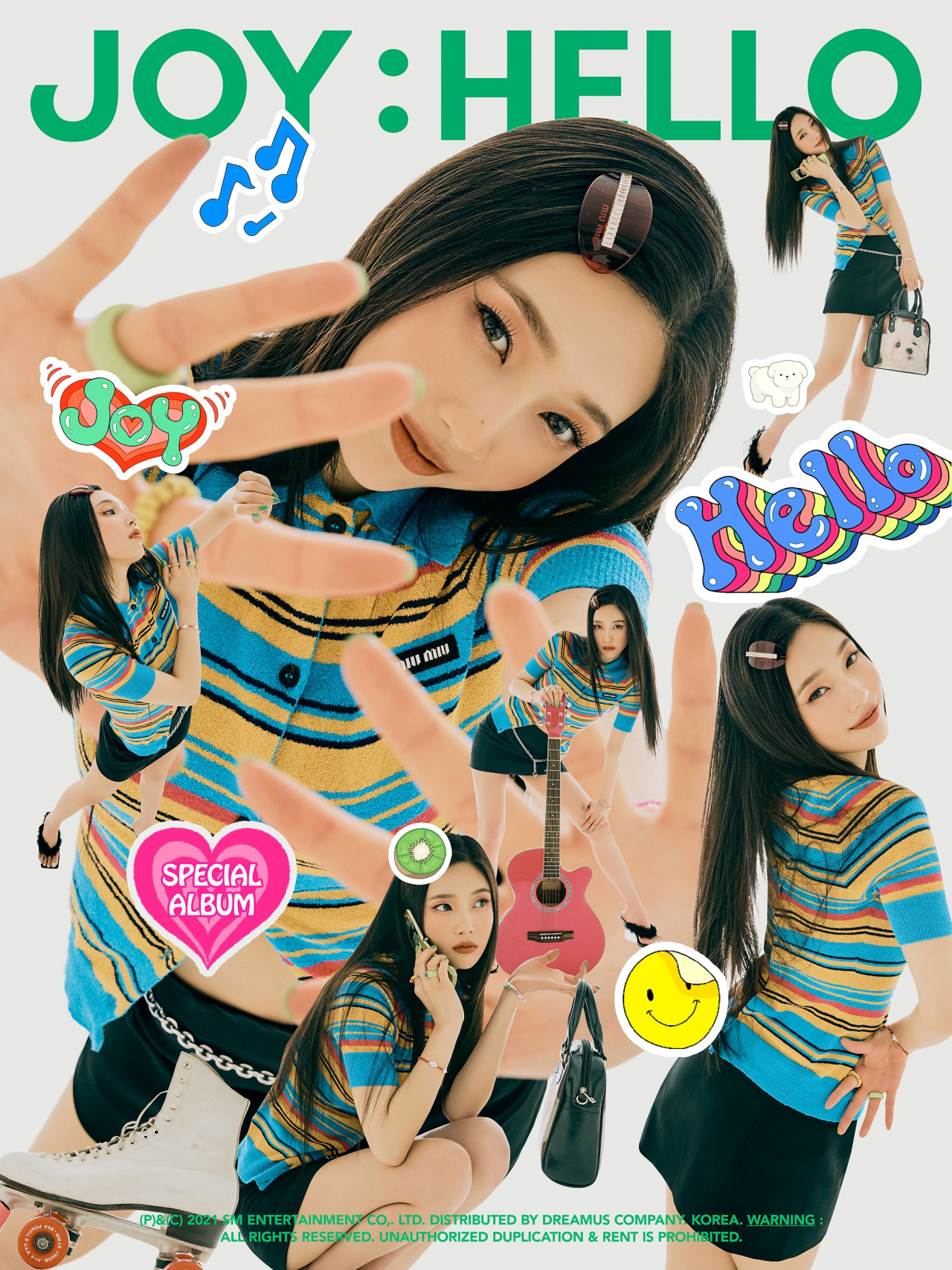 |
Red Velvet member Joy's solo album “Hello” released in 2021. (SM Entertainment) |
“I like that Y2K clothes are more colorful than the ones that come out today.”
Big corporations like Samsung have turned their attention to the Y2K trend as well. It first rolled out its Galaxy Z Flip smartphone series in 2020, as a nod to the flip phones widely used in the 2000s.
A meaningful return
While some say that fashion repeats itself every 20 years to explain the Y2K trend, others cite deeper meanings behind its comeback.
Generation Z resonates with youth from the time, who were more expressive in their fashion by wearing more color, according to an expert.
“Gen Zs focus on expressing themselves through their own unique styles,” Kim Gong-sook, a cultural contents professor at Andong National University said.
“A key zeitgeist in the 2000s was a strong expression of oneself, and Gen Z resonates with that,” she added.
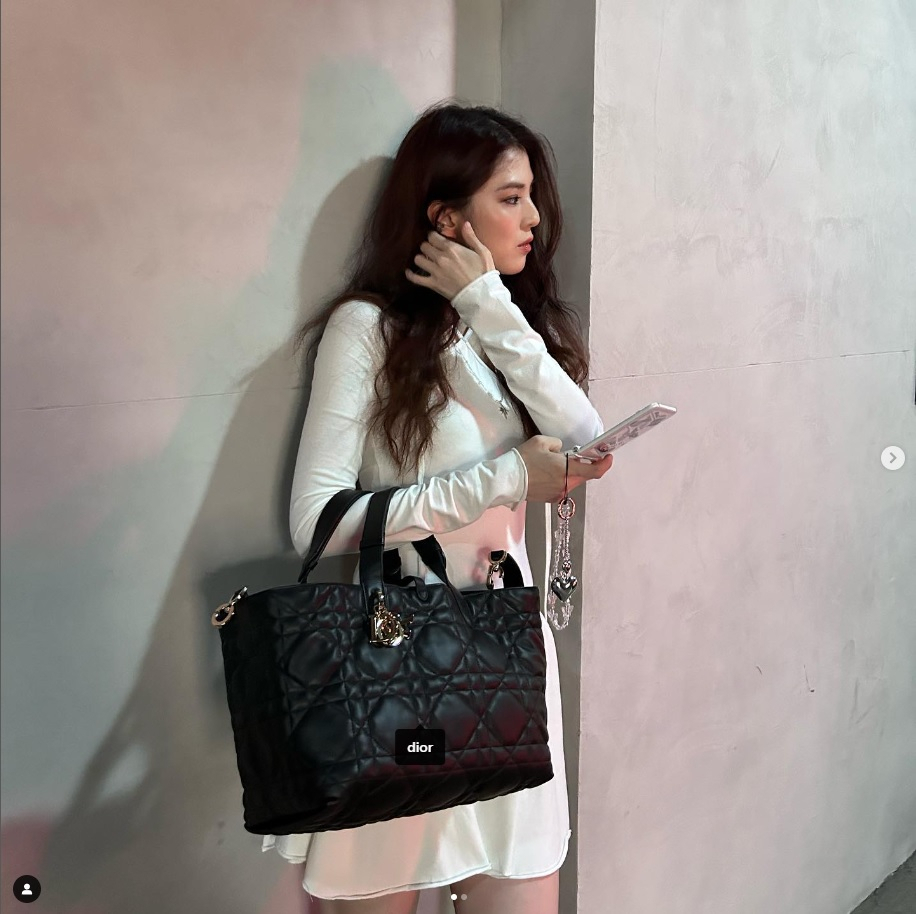 |
Actor Han So-hee poses holding an old-fashioned flip phone in her hand. Flip phones from the 1990s and early 2000s before smartphones became the norm of mobile communication are among the hottest Y2K items among young Koreans. (Han’s Instagram) |
Meanwhile, another expert pointed out that when a younger generation seeks trends from the past, it is mostly due to anxieties and uncertainties about the future.
“The 2000s culture was very colorful, so it could seem like a very vibrant and peaceful past for millennials and Gen Z, at least on the surface,” said Lee Eun-hee, a consumer science professor at Inha University.
“The Y2K culture feels very fresh, while also being a symbol of a simpler time, which gives them a sense of comfort."







![[Today’s K-pop] Blackpink’s Jennie, Lisa invited to Coachella as solo acts](http://res.heraldm.com/phpwas/restmb_idxmake.php?idx=644&simg=/content/image/2024/11/21/20241121050099_0.jpg)